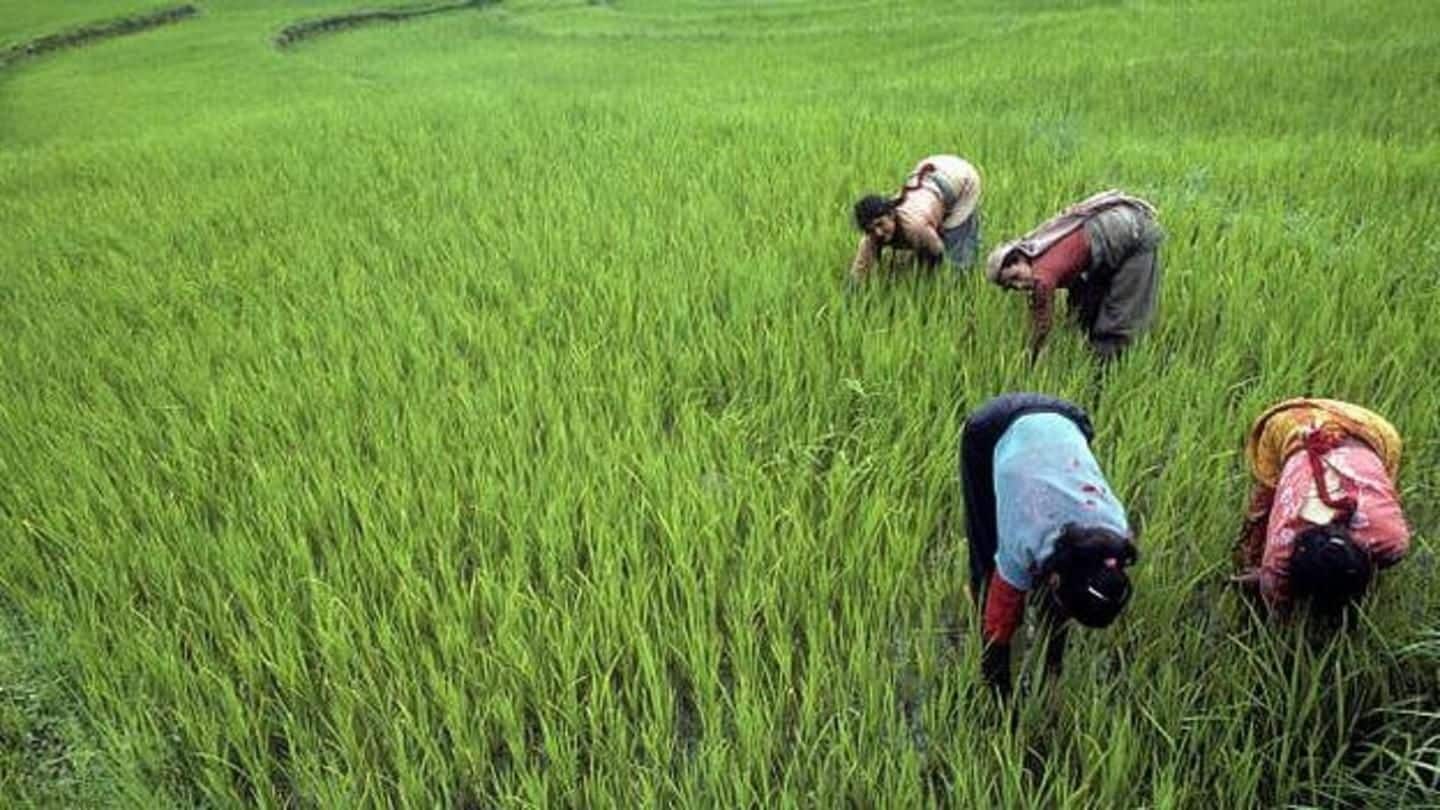
Cheer for farmers: Government fixes MSP at 150% of production-cost
What's the story
Fulfilling a key election promise in its penultimate year, the Narendra Modi government today approved hikes in minimum support price (MSP) for kharif crops. Under the new regime, farmers will get a 50% profit over cost of production. The scheme will cost the government roughly 0.2% of GDP, or Rs. 33,500cr. NITI Aayog Vice-Chairman Rajiv Kumar also sought to allay fears of inflation due to the hike.
Definition
MSP and its many benefits
The MSP is the least price at which the government purchases crops from farmers, irrespective of the market price. This insures farmers against sudden drops in agricultural produce prices. By doing so, MSP also ensures adequate food grain production in the country.
Formula
How does the government calculate the MSP?
To calculate the cost of production, the government adopted the A2+FL formula (which includes actual paid out cost of all inputs plus imputed value of unpaid family labour). The maximum weight of 53%has been accorded to labor, with fertilizers, pesticides, farm animals, seeds and irrigation making up the rest. The new scheme covers a range of crops, shifting away focus from rice and wheat.
Prices
Here's how much prime crops will cost now
Paddy, the main kharif crop, will see an increase of Rs. 200, a 13% hike on last year's MSP. Cotton (medium staple) has been fixed at Rs. 5,150 and long staple, Rs. 5,450. Among pulses, tur will fetch Rs. 5,675, moong Rs. 6,975, and urad Rs. 5,600. 'Nutri-cereals' like millets will benefit the most, since their prices were much below the mandated '50% profit' MSP.
Plans
Government mulls new mechanism to ensure better implementation
The success of the MSP depends on wider procurement of crops, details of which are still being worked out. Despite the existence of a Price Support Scheme (PSS) procurement system, farmers currently get less than MSP for a majority of 23 notified crops. The government is preparing a mechanism, including market assurance scheme (MAS) and price deficiency payment scheme (PDPS), to ensure efficient procurement.
Impact
How will the new MSP affect things on the ground?
Experts said higher MSPs along with a normal monsoon forecast is likely to boost foodgrain production this year, especially in rice, which touched an all-time high of 111mn tonnes in 2017-18. It'll also push up the government's food-subsidy bill. But Rajiv Kumar and Siraj Hussain (Senior Fellow, ICRIER) dismissed concerns about inflation; no impact will be seen unless market prices rise too, Hussain explained.
Information
BJP's masterstroke ahead of 2019?
This decision comes right before the crucial 2019 elections. The ruling BJP has faced electoral defeats and political setbacks in recent times, and on the other hand, a united opposition is making its presence felt. Keeping farmers happy can make a big change in fortunes.